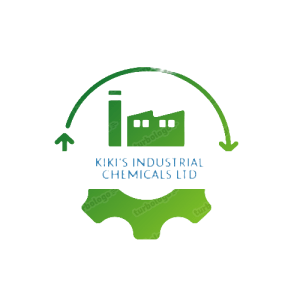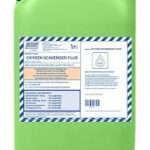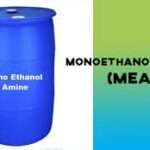GAS TREATMENT CHEMICALS
Gas treatment chemicals are used in the oil and gas industry to treat gas and ensure its quality. These chemicals are essential to maintain the integrity of equipment and pipelines, prevent corrosion, and ensure that the gas is safe for transportation and use. There are many different types of gas treatment chemicals available on the market today, each with its unique properties and applications.
H2S scavengers:
- H2S scavengers: These chemicals are used to remove hydrogen sulfide (H2S) from natural gas. H2S is a toxic gas that can cause corrosion and other damage to equipment, so it is important to remove it from the gas before it is transported or used.
Oxygen scavengers:
- Oxygen scavengers: These chemicals are used to remove oxygen from water in oil production systems. Oxygen can cause corrosion and other damage to equipment, so it is important to remove it from the system.
Gas sweetening chemicals:
- Gas sweetening chemicals: Gas sweetening chemicals are used to remove impurities, such as hydrogen sulfide and carbon dioxide, from natural gas. These impurities can cause corrosion and other damage to equipment, so it is important to remove them from the gas before it is transported or used.
- Several alkanolamines solutions have been widely used in gas sweetening system.
1. Monoethanolamine (MEA)
2. Diethanolamine (DEA)
3. DIglycolamine (DGA)
4. Di-isopropanolamine (DIPA)
5. Methyl diethanolamine (MDEA)
6. Triethanolamine (TEA)
7. Glycol plus amine solution.
Scale inhibitors
- Scale inhibitors: Scale inhibitors are specialty chemicals that are added to oil production systems to delay, reduce, and/or prevent scale deposition. Scale is the precipitate that forms on surfaces in contact with water as a result of the precipitation of normally soluble solids that become insoluble as temperature increases.
Scale dissolvers
- Scale inhibitors: Scale inhibitors are specialty chemicals that are added to oil production systems to delay, reduce, and/or prevent scale deposition. Scale is the precipitate that forms on surfaces in contact with water as a result of the precipitation of normally soluble solids that become insoluble as temperature increases.
Paraffin inhibitors:
- Paraffin inhibitors: Paraffin inhibitors are chemicals used to prevent the buildup of paraffin wax in oil wells. Paraffin wax is an organic scale that can cause blockages and reduce production rates.
Paraffin solvents:
- Paraffin solvents: Paraffin solvents are chemicals used to dissolve paraffin wax buildup in oil wells. They are used to remove blockages and restore production rates.
Gas hydrate inhibitors
- Gas hydrate inhibitors: Gas hydrate inhibitors are chemicals used to prevent the formation of gas hydrates, which can cause blockages and reduce production rates in oil wells. Gas hydrates are formed when natural gas combines with water under high pressure and low temperature conditions.
More types of gas treatment chemicals
There are many different types of gas treatment chemicals available on the market today, each with its own unique properties and applications. Some of the most commonly used gas treatment chemicals include:
- Triazine-based scavengers: These H2S scavengers are commonly used in the oil and gas industry due to their effectiveness at removing H2S from natural gas.
- Sodium sulfite: This oxygen scavenger is commonly used in water treatment systems to remove oxygen from water.
- Amine-based sweeteners: These gas sweetening chemicals are commonly used in the oil and gas industry due to their effectiveness at removing impurities from natural gas.
- ACCENT Series Scale Inhibitor: This scale inhibitor is commonly used in oil production systems due to its effectiveness at delaying, reducing, and preventing scale deposition.
- There is no specific example provided for scale dissolvers, paraffin inhibitors, paraffin solvents, or gas hydrate inhibitors.
In addition to these specific examples, there are many other types of gas treatment chemicals available on the market today. Some of these include:
- Corrosion inhibitors: These chemicals are used to prevent corrosion in pipelines, tanks, and other equipment used in the oil and gas industry.
- Biocides: These chemicals are used to control bacterial growth in water treatment systems.
- Defoamers: These chemicals are used to control foam formation in water treatment systems.
- Emulsifiers: These chemicals are used to stabilize emulsions in oil production systems.
- Asphaltene inhibitors: These chemicals are used to prevent asphaltene deposition in oil production systems.
- Ion sulfide dissolvers: These chemicals are used to dissolve ion sulfides that can cause corrosion in pipelines and other equipment.
- Ion sulfide inhibitors: These chemicals are used to prevent ion sulfides from forming in pipelines and other equipment.

























